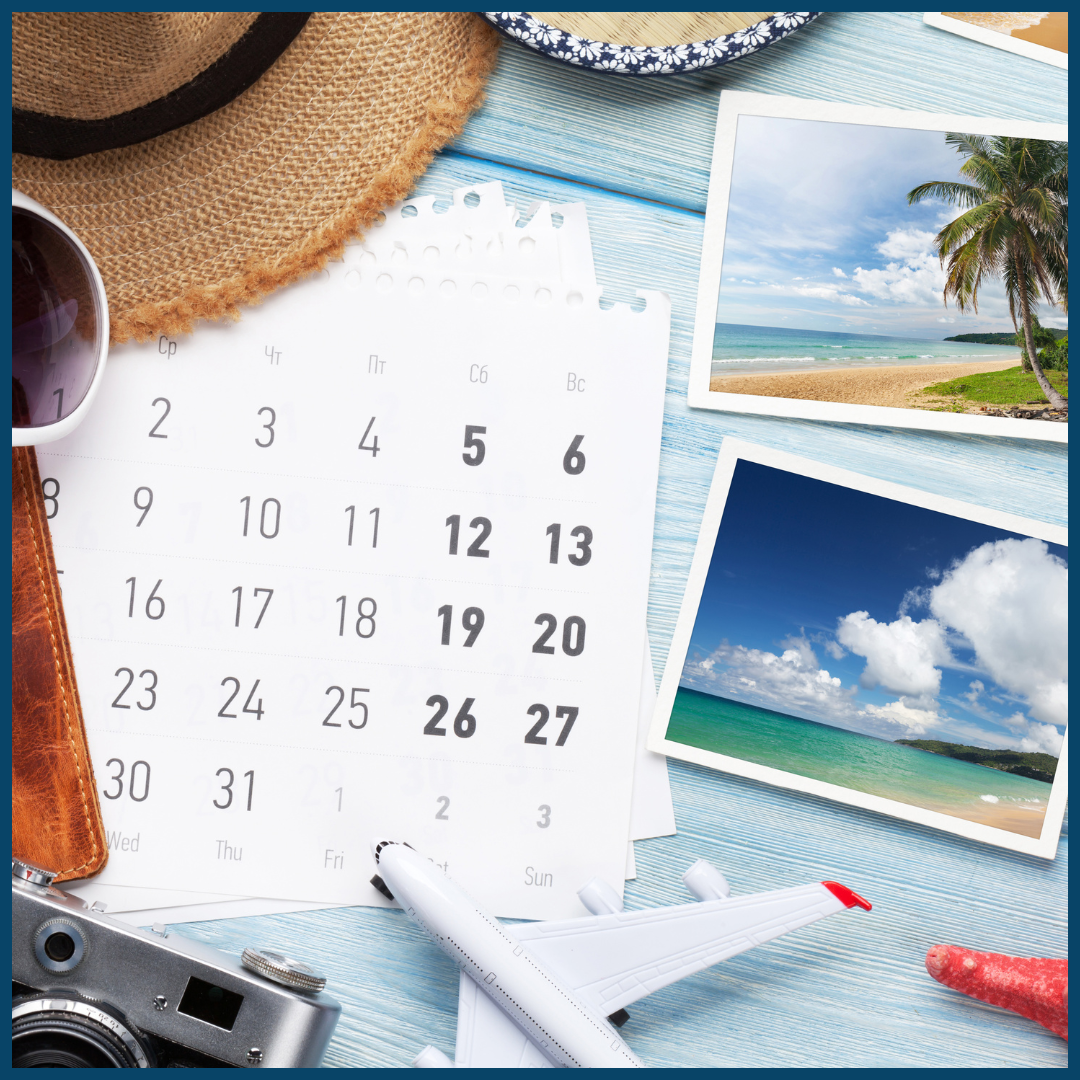
How to Block Out Time for You
If you’ve ever tried to use airline miles, you’ve probably encountered information about black-out dates. These are often dates on either side of a holiday or major travel time when no matter how many points you have, you can’t use them to secure a flight.
What does this have to do with organizing your time? More than you might think!
The issue? Most of us DON’T have our own black-out dates (or even hours) on the agenda. Our calendar is filled from morning to night with appointments, errands, and tasks. We barely use our earned leave time. When we plan a trip, it’s common to “stay connected” so that we don’t truly get a break. Or we are crazy busy until the moment we leave for vacation and then we scurry to “play catch up” when we return. As a result, we often don’t feel like we had any downtime at all.
We all know that it would be easier to reserve flights with accumulated miles if there weren’t restrictions, but that’s how the system works. People, however, would be better off if we implemented black-out dates. We need time to relax and rejuvenate. We need to reduce stress so that we can put in a more concentrated effort on crucial tasks. When we don’t practice good self-care, we tend to take longer to complete tasks, have less patience, and sometimes get physically sick because we get rundown.
I know that some of you are saying, “but I can’t possibly take any time off.” Or maybe you’re thinking, “my budget doesn’t account for taking a real vacation.” Here are some ways you can create some “black-out times” (days, hours, or minutes) in your calendar:
-
If your day doesn’t slow down once it’s started, block out some time at the beginning of your day. Maybe you get up 30 minutes earlier and have a cup of coffee in the rocking chair on your deck. What about going for a 15-minute walk (without any devices). Turn off your phone on the way to work and play your favorite music.
-
If your day starts off quickly, try to carve out a little time at the end of the day. What about a relaxing bath with some aromatherapy and candles? Get your favorite beverage and watch the moon rise.
-
Plan a short “staycation.” Take an extra day on one side of a three-day holiday weekend. Put in for vacation time at your job. Turn off work notifications and do some fun things locally. It’s amazing how many people (myself included ) haven’t taken advantage of museums, parks, etc. within a one-hour drive of home.
If you can take a vacation, plan an extra half-day (full day if you can) on each side. So if you’re going away Sunday to Saturday, take the last four hours of Friday to close out (or delegate) current work tasks. Saturday will be the day to get things settled at home and get packed. The Sunday after you return is when you unpack, do laundry and open mail. That Monday morning, you’ll catch up at work before your daily schedule starts in earnest.
So I can still hear you saying, “I can’t possibly do a vacation or a staycation.” What is preventing you? Most likely it’s fear. Fear that something bad will happen while you’re away. Fear that you’ll miss out on something. Any number of concerns might pop into your head. But at the end of your life, I’m pretty sure you won’t lament missing a few hours of work. But you might regret missed time with family or friends. Or you might really wish you’d traveled to certain places.
It’s amazing what you can do if you’re motivated. I love to travel! Even owning a business hasn’t prevented me from carving out time to travel. I’ve taken up to three weeks off without doing any work (including checking email). When I plan for a trip, I plan at least one administrative day (no clients) before I leave so that I can complete work tasks and pack. Depending on where I’m going, I plan one or maybe two days to readjust upon my return. I make it possible because travel is important to me.
What’s important to you? A monthly massage? A family beach week each summer? A three-day yoga retreat? A monthly pedicure? Season tickets to your favorite team’s games? Regularly walking in nature by yourself? Five minutes of mindfulness each day? You decide what would create some black-out time for you. Then, see what’s preventing you from taking that time. Finally, start removing the obstacles in your way.
Special note: there are situations for which black-out time is not only recommended, it’s required. Some medical treatments require extra rest, either to be effective or as a side-effect.
What is one small step you will take today to create some black-out time for yourself?
Typing your “one very small action” in the comments below will make you more likely to take action!


